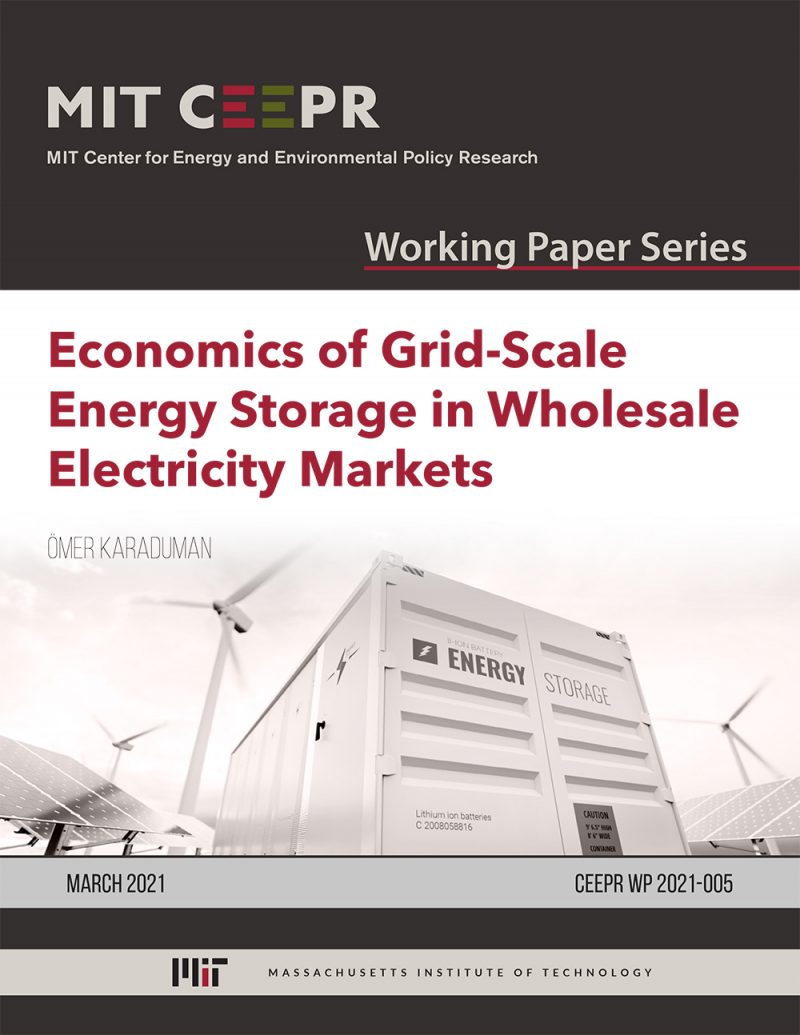Economics of Grid-Scale Energy Storage in Wholesale Electricity Markets
Ömer Karaduman
March 2021
The transition to a low-carbon electricity system is likely to require grid-scale energy storage to smooth the variability and intermittency of renewable energy. I investigate whether private incentives for operating and investing in grid-scale energy storage are optimal and the need for policies that complement investments in renewables with encouraging energy storage. In addition to arbitraging inter-temporal electricity price differences, storage induces non-pecuniary externalities due to production efficiency and carbon emissions. I build a new dynamic structural equilibrium framework to quantify the effects of grid-scale energy storage and apply it to study the South Australian Electricity Market. My equilibrium framework adds key modeling features to the literature by allowing (1) storage’s price impact and (2) incumbents to best response to energy storage’s production. The best responses’ estimation uses the best responses from conventional sources to observed variation in the residual demand volatility. We find that (1) ignoring price impact of energy storage may lead large biases as arbitrage revenue diminish fast with the size, (2) although entering the electricity market is not profitable for privately operated storage, such entry would increase consumer surplus and reduce emissions, (3) load ownership for energy storage leads to twice as much improvement in consumer surplus, and (4) entry of energy storage reduces renewable generators’ revenue by decreasing average prices at moderate levels of renewable power, however, for high renewable generation capacity levels, storage increases the return to renewable production and reduces CO2 emissions by preventing curtailment during low-demand periods.



